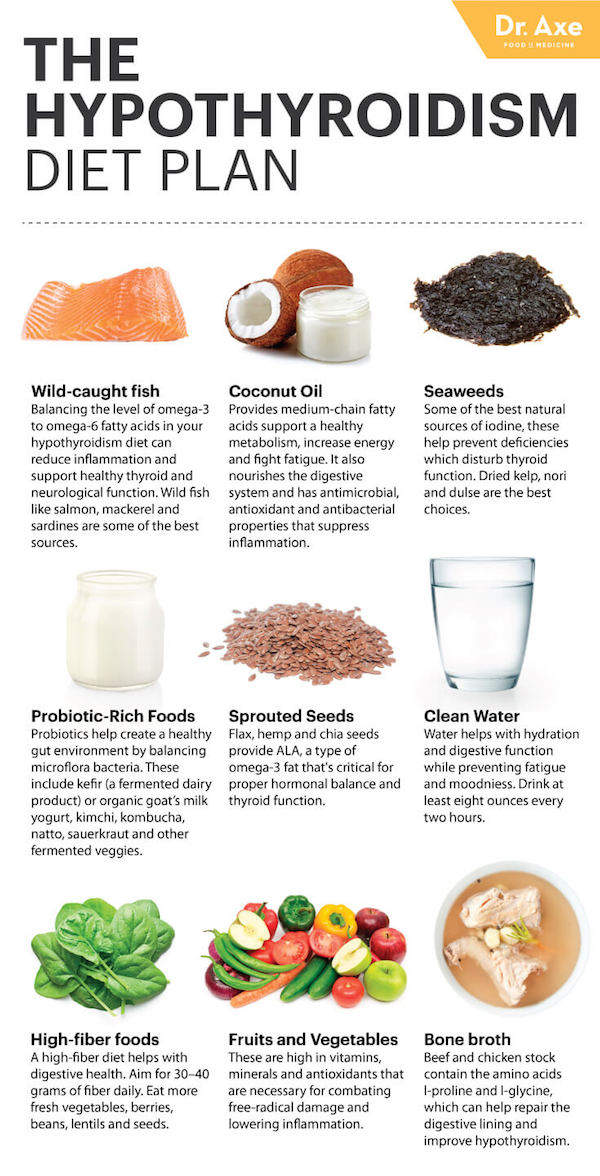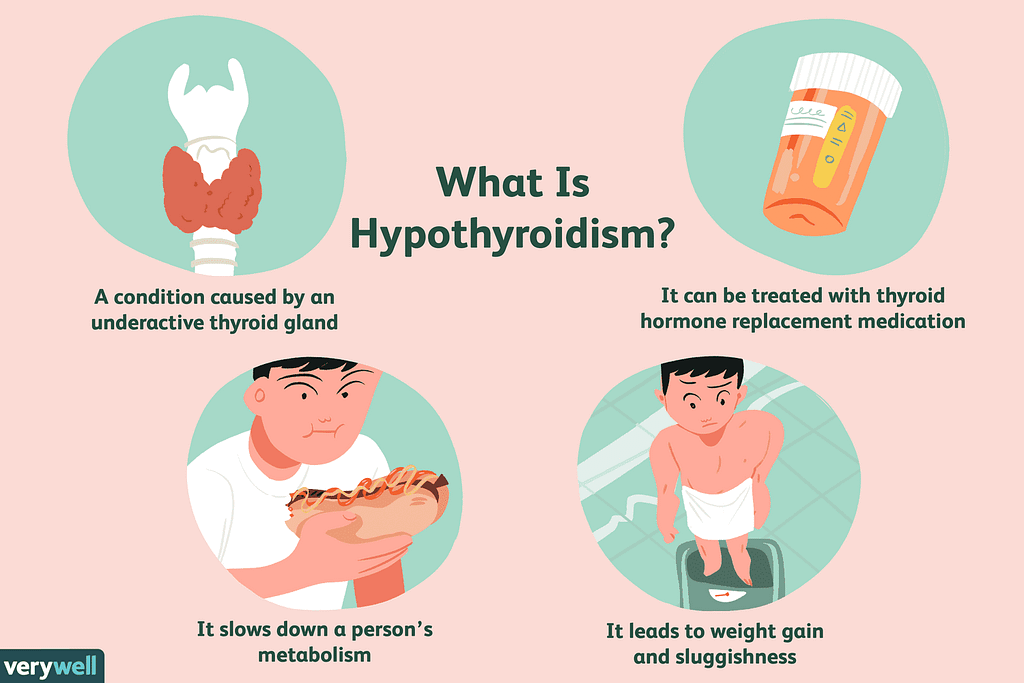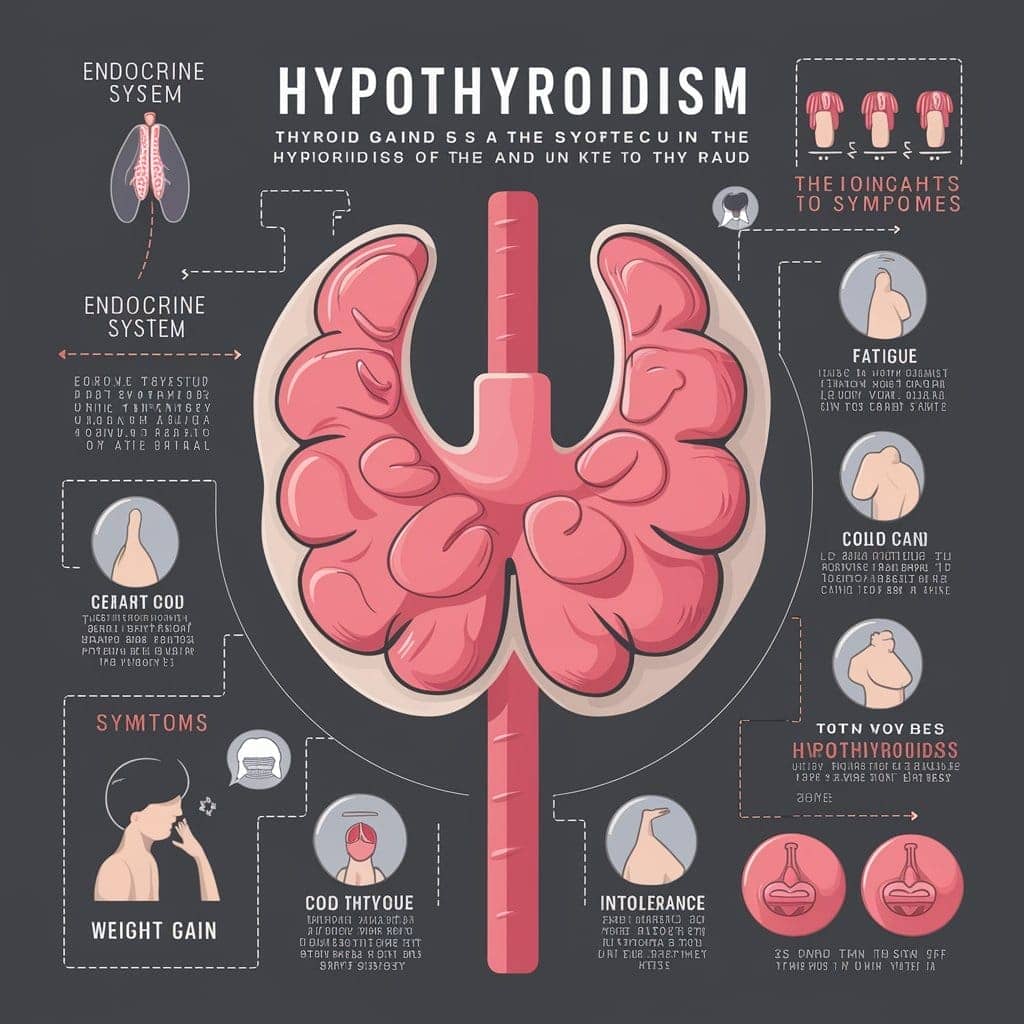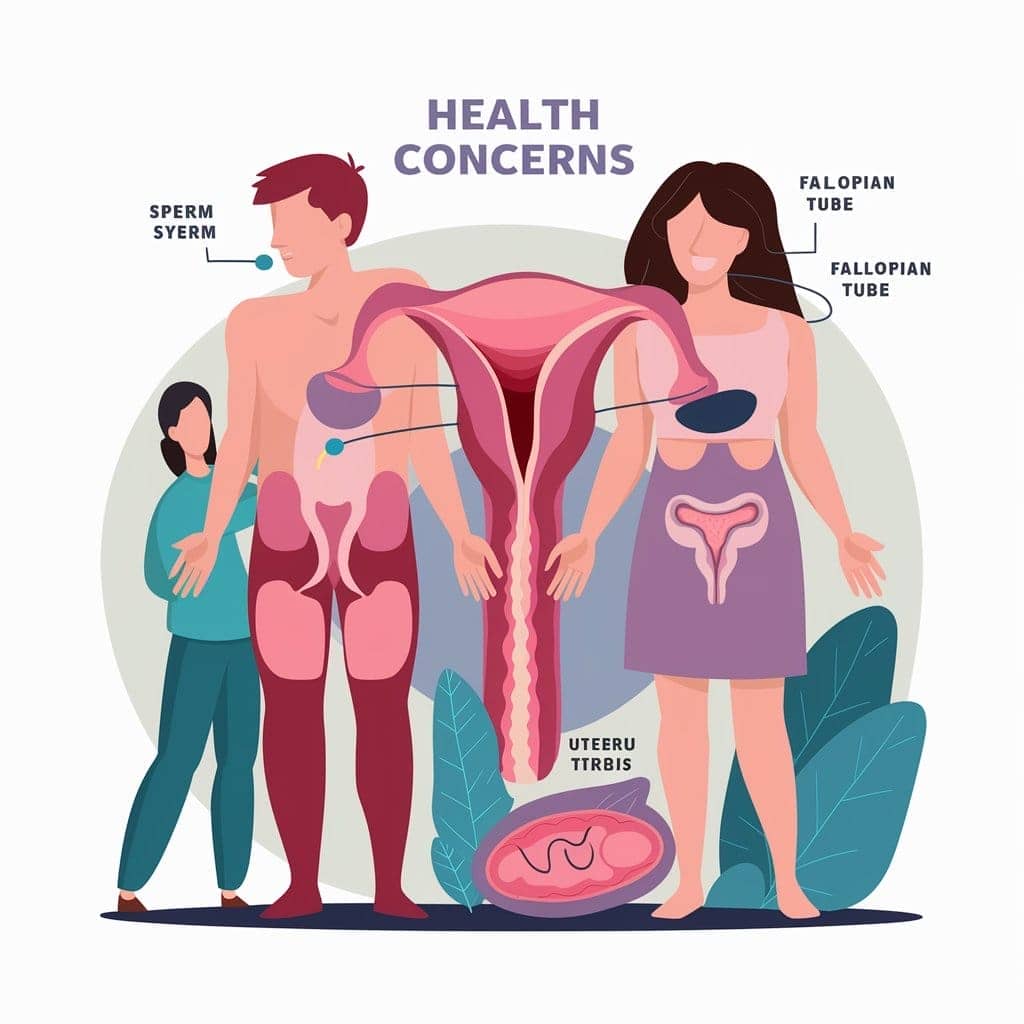Every year, millions of people worldwide grapple with the underappreciated challenge of managing low thyroid function. Known medically as hypothyroidism, this condition can lead to fatigue, weight gain, and even depression if not properly treated. Understanding the intricacies of thyroid treatment is crucial for both patients and healthcare providers alike.
Historically, thyroid hormone replacement therapy has been the cornerstone of treatment for hypothyroidism. Levothyroxine, a synthetic thyroid hormone, remains the most commonly prescribed medication, boasting a success rate of nearly 70% in symptom improvement. Precision in dosage and consistent monitoring ensures efficacy and mitigates potential side effects, making it essential for optimal patient outcomes.
:max_bytes(150000):strip_icc()/overview-of-hypothyroidism-4164534_final-b72106e4545d45afad2caff2910427d9-1697410c70574bc29facb17e0024a9d8.png)
Understanding Hypothyroidism
What is Hypothyroidism?
Hypothyroidism is a condition where the thyroid gland doesn’t produce enough thyroid hormone. This hormone is important for regulating metabolism. Without enough thyroid hormone, many body functions slow down.
The thyroid gland is located at the front of your neck. It plays a big role in controlling how your body uses energy. When it doesn’t work properly, it can cause health problems.
People with hypothyroidism often feel tired and sluggish. They might also gain weight easily and feel cold more often. These symptoms occur because the body’s metabolism slows down.
Causes of Hypothyroidism
There are several reasons why someone might develop hypothyroidism. One common cause is Hashimoto’s thyroiditis, an autoimmune disease. In this condition, the body’s immune system attacks the thyroid gland.
Another cause can be certain medications or treatments for other thyroid conditions. For instance, treatment for hyperthyroidism could lead to hypothyroidism afterward. Additionally, radiation treatment for cancers in the head or neck area can damage the thyroid.
Sometimes, hypothyroidism is due to a lack of iodine in the diet. Iodine is needed for the production of thyroid hormones. However, this is less common in areas where iodine is added to table salt.
Impact on the Body
Hypothyroidism can affect various body systems. For example, it can slow down your heart rate and cause constipation. It can also lead to muscle weakness and joint pain.
In children, severe hypothyroidism can cause growth delays and cognitive issues. They might not grow as quickly as other kids their age. It’s important to diagnose and treat hypothyroidism early to avoid these issues.
Women with hypothyroidism might have irregular menstrual cycles. It can also make it harder to get pregnant. Proper treatment can help manage these symptoms and improve quality of life.
Hypothyroidism treatment medications ~pharmacology~
Signs and Symptoms of Low Thyroid Function
Low thyroid function, or hypothyroidism, can affect various aspects of health. Recognizing its signs and symptoms is crucial for timely diagnosis and treatment. Let’s break down some of the key indicators.
Physical Symptoms
One of the most common physical symptoms is fatigue. People with low thyroid function often feel tired despite getting enough sleep. Another notable sign is weight gain without changes in diet or exercise.
Additionally, those with hypothyroidism may experience hair loss and dry skin. Constipation can also be a problem due to slower digestive processes. These symptoms occur as the body’s metabolism slows down.
It’s important to remember that these symptoms can vary in severity. For some, the changes might be subtle, while for others, the symptoms could be more pronounced. Recognizing these signs early can aid in seeking medical help.
Mental and Emotional Symptoms
Hypothyroidism doesn’t just affect the body; it can impact mental health as well. Many people with low thyroid function report feeling depressed or anxious. Cognitive issues such as memory problems and difficulty concentrating can also arise.
These mental symptoms can sometimes be mistaken for other conditions. That’s why it’s important to consider them alongside physical symptoms. Treatment of hypothyroidism often helps improve these mental health issues.
Emotional well-being can be particularly challenging to manage. Support and understanding from friends and family can make a big difference. Mental health professionals can also offer valuable assistance.
Other Uncommon Symptoms
In some cases, hypothyroidism can cause more unusual symptoms. For instance, people might experience hoarseness and swollen neck due to an enlarged thyroid gland. This condition is called goiter.
Some individuals could also have increased sensitivity to cold. They might feel chilly even when others are comfortable. Changes in the menstrual cycle can also occur for women with low thyroid function.
These less common symptoms might be harder to connect to hypothyroidism. Consulting with a healthcare professional can help clarify these signs. Early detection and treatment can significantly improve quality of life.
Diagnosing Hypothyroidism
Diagnosing hypothyroidism begins with recognizing the signs and symptoms of low thyroid function. Once symptoms are noted, a healthcare provider will usually recommend blood tests. These tests measure the levels of thyroid hormones in the blood.
The primary blood test used is the Thyroid Stimulating Hormone (TSH) test. High levels of TSH often indicate low thyroid function, as the body tries to stimulate the thyroid to produce more hormones. Another important test measures Free T4, the main thyroid hormone circulating in the blood.
In some cases, healthcare providers may also check for thyroid antibodies, which can signify an autoimmune condition like Hashimoto’s thyroiditis. This condition is a common cause of hypothyroidism. Other tests might include imaging studies or additional blood tests to rule out related conditions.
Regular monitoring is crucial for managing hypothyroidism effectively. Once diagnosed, patients typically need periodic blood tests to ensure their thyroid hormone levels stay within a healthy range. This helps in adjusting treatment plans as necessary to maintain optimal health.
Treatment Options for Hypothyroidism
Treating hypothyroidism usually involves hormone replacement therapy. One of the most common medications is levothyroxine, a synthetic thyroid hormone. This medication helps restore normal hormone levels, improving symptoms.
Levothyroxine is taken as a daily pill, often in the morning. Consistent timing helps maintain stable hormone levels in the body. Regular blood tests are crucial for adjusting the dosage accurately.
For some individuals, natural desiccated thyroid (NDT) might be an alternative. NDT comes from animal thyroid glands and includes both T4 and T3 hormones. However, it may not be suitable for everyone and requires careful monitoring.
Diet and lifestyle also play significant roles in managing hypothyroidism. Eating a balanced diet rich in iodine, selenium, and zinc supports thyroid function. Avoiding excessive soy and cruciferous vegetables can also help as they may interfere with hormone production.
Regular exercise can boost energy levels and improve overall well-being. It’s also beneficial for weight management, which can be a challenge for those with hypothyroidism. Stress management techniques like yoga and meditation can additionally support thyroid health.
Personalized treatment plans are important for effective management. What works well for one person might not be suitable for another. Continuous communication with a healthcare provider ensures optimal care and adjustments as necessary.
Living with Hypothyroidism
Living with hypothyroidism requires a combination of medication and lifestyle adjustments. Consistently taking prescribed medication is crucial for managing symptoms. Missing doses can lead to fluctuations in hormone levels, causing additional health problems.
It’s essential to have regular check-ups with your healthcare provider. These visits often involve blood tests to monitor your thyroid hormone levels. Adjustments to your medication might be necessary based on these results.
Dietary considerations can also help. Eating foods rich in iodine, like fish and dairy, supports thyroid function. However, avoid consuming too much iodine, as it can also cause issues.
- Incorporate selenium-rich foods like nuts and seeds.
- Maintain a balanced diet with plenty of fruits and vegetables.
- Avoid processed foods and excessive sugar intake.
Regular physical activity can improve your overall well-being. It helps Combat fatigue and aids in weight management. Regular exercise can also boost your mood and energy levels.
Dealing with the emotional aspects of hypothyroidism is equally important. Support from friends and family can make a huge difference. Consider joining a support group to connect with others facing the same challenges.

Frequently Asked Questions
Here are some common questions and answers about hypothyroidism, its symptoms, diagnosis, and treatment options. These will help you understand how to manage this condition effectively.
1. What are the early signs of hypothyroidism?
The early signs of hypothyroidism can be subtle and often mimic other conditions. Fatigue is one of the most common early symptoms, along with weight gain and feeling unusually cold.
Other early signs include dry skin, hair loss, and constipation. Recognizing these symptoms early can lead to timely medical intervention and better management of the condition.
2. How is hypothyroidism diagnosed?
Hypothyroidism is primarily diagnosed through blood tests that measure thyroid hormone levels. The most common test checks for high levels of Thyroid Stimulating Hormone (TSH), which indicates low thyroid function.
A healthcare provider may also measure Free T4 and sometimes thyroid antibodies to get a full picture. Early diagnosis helps in managing the symptoms more effectively with appropriate treatments.
3. Can diet affect thyroid function?
Yes, diet plays a significant role in supporting thyroid health. Iodine, found in fish and dairy products, is crucial for thyroid hormone production.
Selenium-rich foods like Brazil nuts can also support thyroid functions. While diet alone cannot treat hypothyroidism, it complements medical treatments well and helps manage symptoms better.
4. Are there any natural remedies for hypothyroidism?
Natural remedies alone should not replace conventional treatment but can support overall health. Supplements like iodine or selenium might help if you have deficiencies.
Lifestyle changes such as regular exercise and stress management techniques like yoga can also benefit individuals with hypothyroidism. Always consult your healthcare provider before starting any natural remedy or supplement.
5. Why is regular monitoring important for hypothyroidism?
Regular monitoring through blood tests ensures that your hormone levels remain stable while on medication like levothyroxine. This helps in adjusting dosages accurately for optimal symptom control and overall well-being.
An imbalance in hormone levels requires immediate adjustments to avoid complications.. Therefore, consistent follow-up appointments with your healthcare provider are essential to keep track of your condition effectively.
Hypothyroidism (Underactive Thyroid): Symptoms, Diagnosis \u0026 Treatment – Ask A Nurse | @LevelUpRN
Conclusion
Effectively managing hypothyroidism requires a comprehensive approach that includes medication, lifestyle changes, and regular monitoring. With the right treatment plan and consistent follow-up, individuals can lead healthy and fulfilling lives. Early detection and personalized care are key to optimal outcomes.
For those living with hypothyroidism, staying informed and proactive is crucial. Understanding the condition and adhering to treatment recommendations can significantly improve quality of life. Always consult your healthcare provider for tailored advice and support on your journey to better thyroid health.


